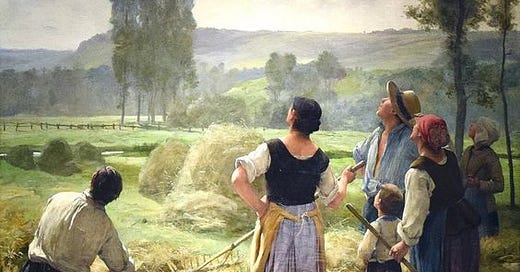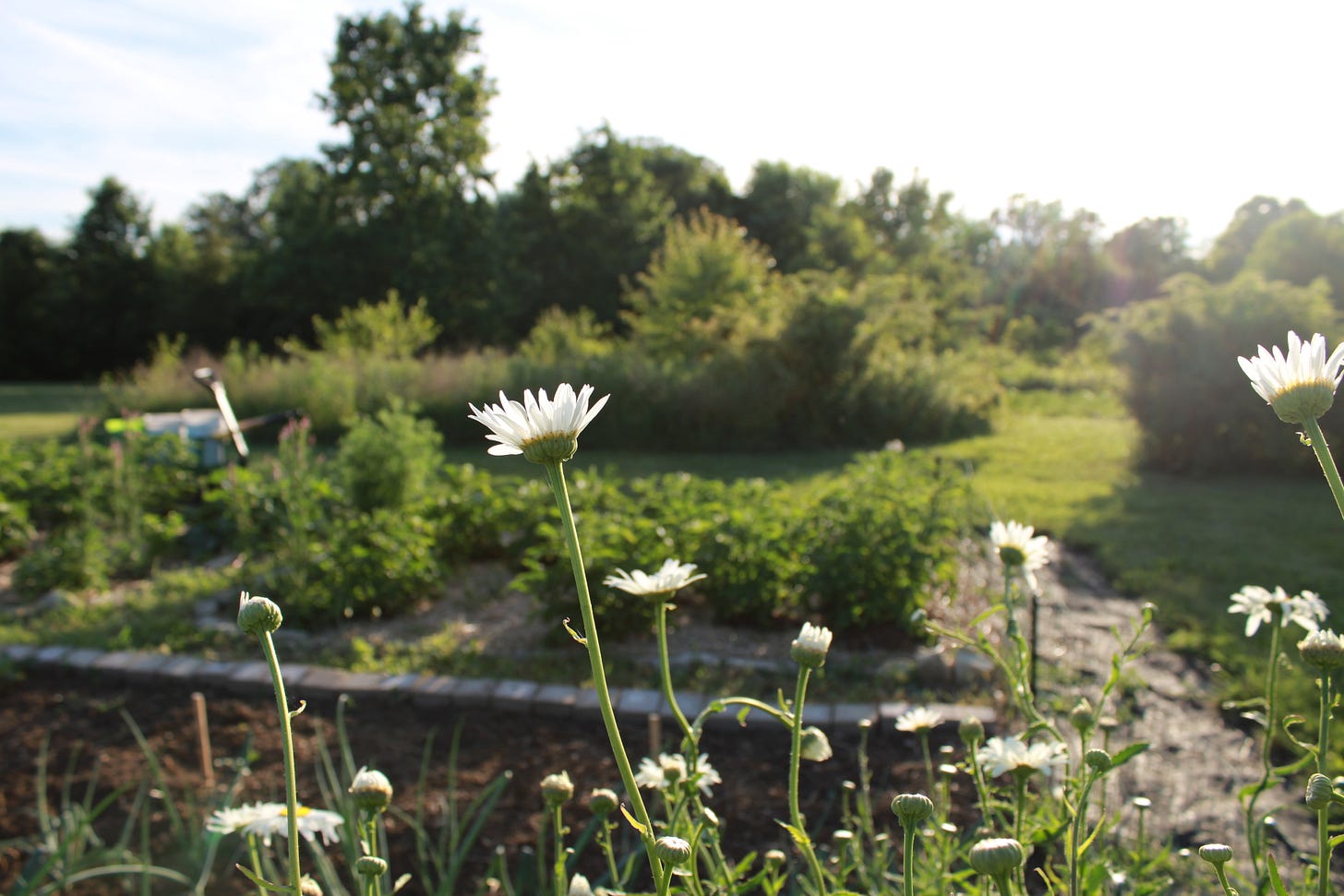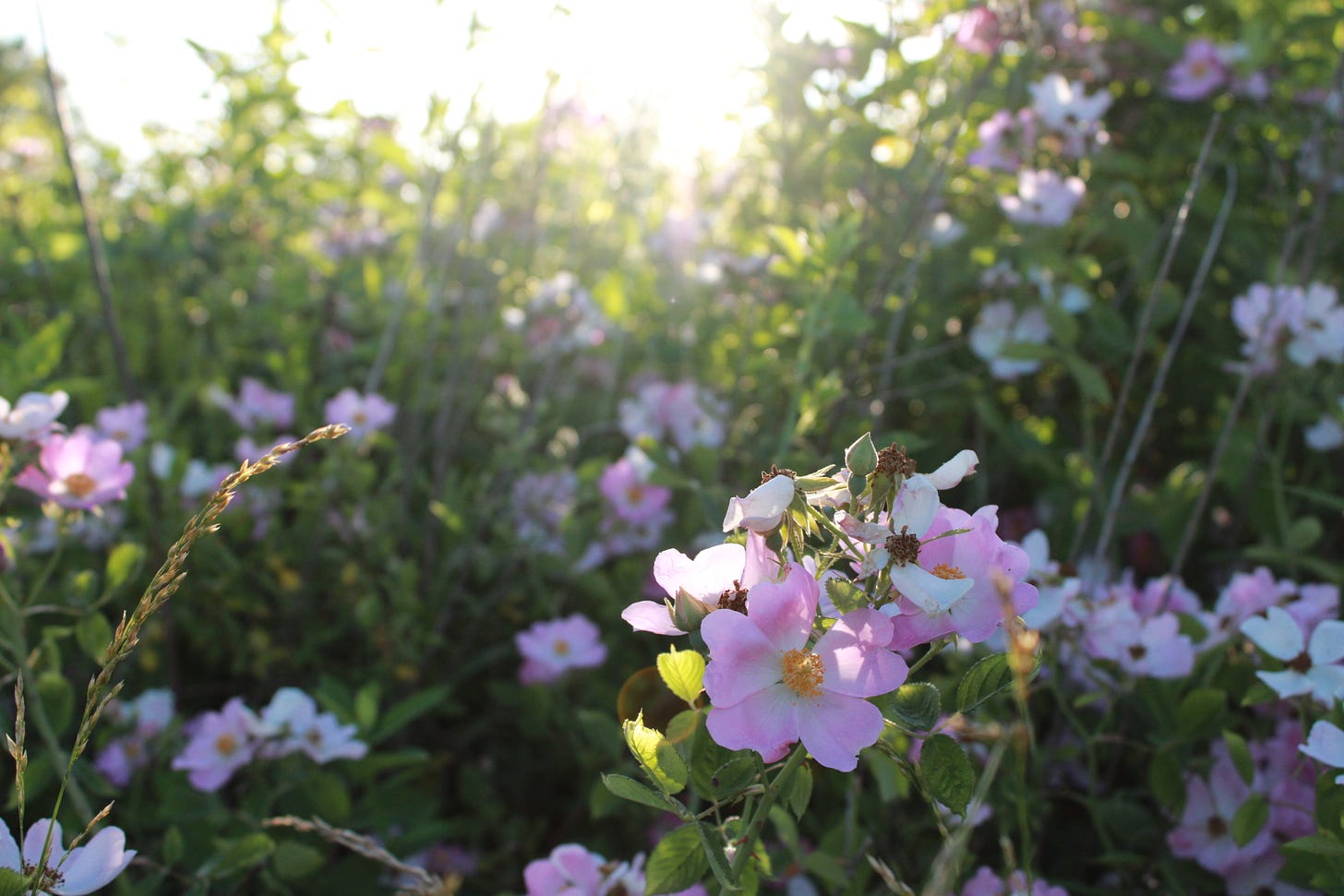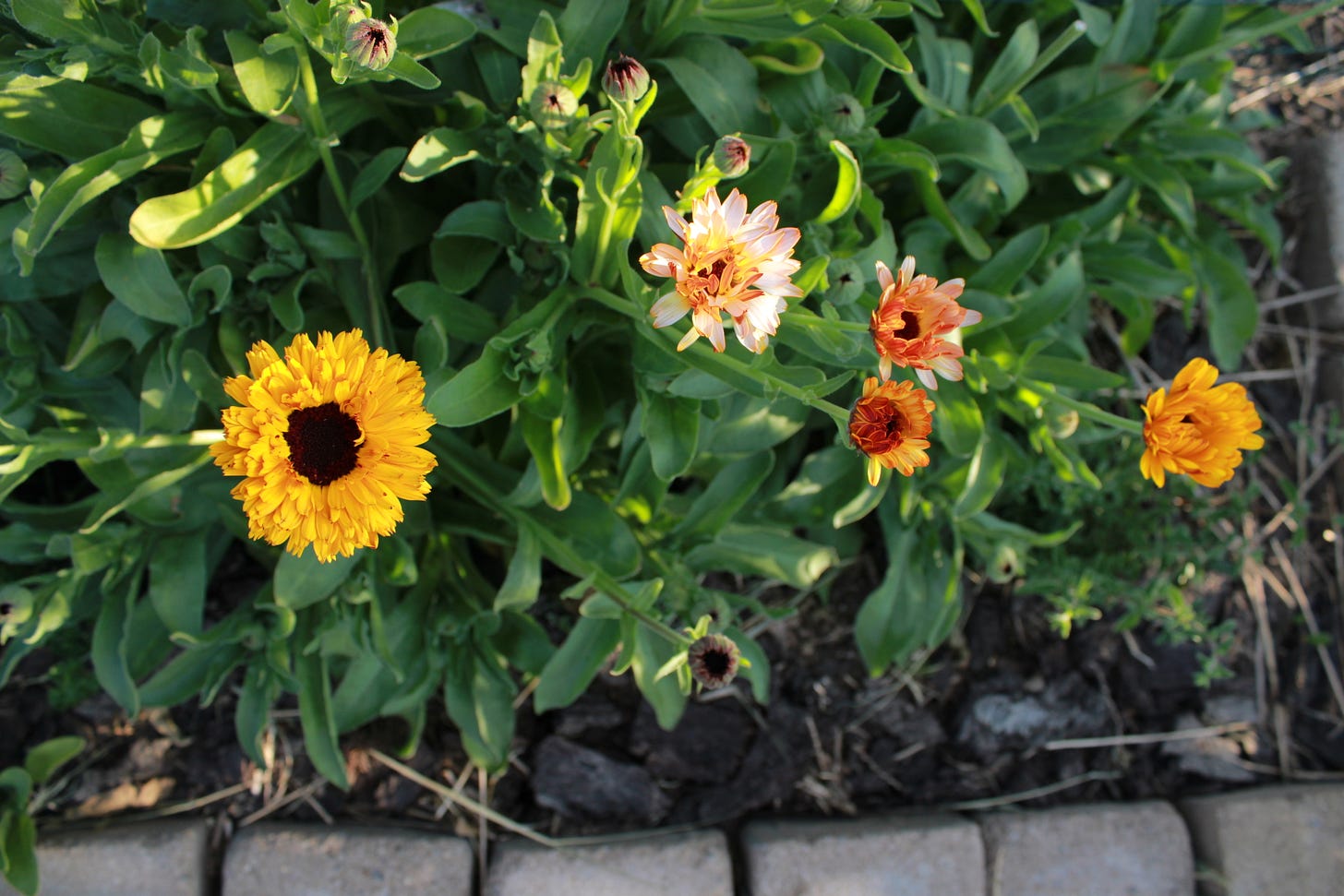I recently finished Wendell Berry’s Jayber Crow. It was strange, and not my favorite, but still a meaningful visit to one of my favorite fictional places — the town of Port William. The endings of Berry’s books often leave me with a sense of melancholy, though, and I think I’ve put my finger on why this is.
Berry writes of a place he has created, an ordinary town where ordinary people live intertwined lives, where neighbors welcome each other to their tables, and where farmers exercise loving care over their land. The inhabitants of this imaginary place seem to nurture their children to love and value the same, and to carry on in this way…but then inevitably, by the end of the book (as with several other in this series) the children move away. The worldly powers swoop in, and there is less and less of the Good Life left until Port William is all but gone. The melancholy comes when I find myself wishing such an ideal would last.
I heard a quote recently that lent some eloquence to the thoughts I have been stewing over recently. “In every deliberation, we must consider the impact on the seventh generation…even if it requires having skin as thick as the bark of a pine.” The words come from the Constitution of the Iroquois Nation, or at least have been verbally repeated in association with it. Evidently these were a people of foresight, of conscience. They were a people who thought about the long-term consequences of their actions, or at least made a communal effort to do so.
How counter-cultural! How brave, to live with the understanding that our actions carry consequences that will be borne by our children and beyond. They will inherit the earth we now steward. Their physical wellness will be built by the health we give them. They will care about the things we care about — or maybe, they won’t. But if we care for them as we ought, then it is enough to offer them the best of what is still good and lovely in the world. I believe we need to remember this.
My husband and I think about the children we hope to bring into our family one day. We talk about who they will resemble, how we want to make their childhoods fun, happy, safe, and comfortable. What will they be like? we wonder, as we go about our work.
There are so many questions. How will we teach them to love what is good, what is beautiful, what is lasting? We want them to hear the Gospel from before they can understand it, and understand it as soon as they can. Will we be able to give them the home we want for them? Anthony has a dream of buying land, enough to build a thriving and productive homestead, and someday acquiring even more land joined to it so that our children can have places to start off when it’s time to have their own homes and families.1
Then there are fears that bring questions in my mind. These are old fears, lingering far past their welcome. Years ago, I had reached a place where I knew in the deepest part of me that I longed for a husband, a home, and a family. It was a surprising discovery; I used to think I would live alone all my life, writing books and drinking tea. All of a sudden, I was faced with the powerful beauty of being a woman, and I hoped against what I could see that I would have babies someday.
But what if that’s not for me? I thought. My body was telling me it was likely not for me. You’ll have to find a different love, it said, a different legacy.
It has been a journey of a few years that has brought me to think about life beyond the present moment. Everything about our lifestyle, including this foresight, can feel like swimming against a strong current. We live in a culture that entreats us to live in the moment and seize the day. We’ve all heard the popular adage to live every day as if it might be your last. But I don’t think any of that is biblical, and on a closer look, when unchecked it can be very unhealthy. Especially in the context of considering parents and children and generations as a whole. My particular quest was to find out what my responsibility was to my children, if I would be a mother someday — and not only that, but what about their children? How was I making their lives better, or worse, by my own decisions, and what power did I really have to do anything about it?
Our bodies are resilient and so gracious, but they can also be fragile. Some people would prefer not to acknowledge it, but what we put into our body has a direct effect on how we feel and function. This isn’t just what we eat; it’s literally everything. Everything matters — nutrition, vaccines, antibiotics, alcoholism, chemical birth control. All of these decisions with affect more than the person making them, and they can really do a lot of harm.
Mothers especially will give so much of themselves to the formation of a new life. A baby will inherit his mother’s microbiome, and whatever good or bad bacteria lives in her gut, she passes this on to her baby. She draws on her mineral stores to the point where she uses up everything she has if she needs to, leaving nothing for herself in a beautiful, sacrificial self-denial.
Chronic illness looms as something I do not want to pass on to my children. It is a small comfort to have a label for it, but not much. Sometimes it’s hard to believe you can change after a sickness has plagued years of your life, and yet, that is the surprising gift chronic illness brings. I see it over and over in my very dear friends. Some of the most creative and radiant women I know have struggled for a long time, but they have not given up — rather, their drive to see healing and change has only strengthened. This is a gift. It is the resolve that presses me on, that challenges me to ask, what can I do now to help my body heal?
Physical health isn’t the only thing to consider, but it’s the thing I’ve been pouring my energy into for the last several years. It’s a piece I believe is often overlooked, and this is to the detriment of our families. By the grace of God, I was born into a family who didn’t believe in subjecting their babies to vaccines in the first few days after birth. My parents weren’t perfect, but it is largely because of them that I came to the understanding I have now about how what we eat and how we live affects the vitality of the next seven generations.
I am aware of the weight that rests on me with every deliberation. I know what is my part to play. My prayer is for a house full of children who don’t inherit the worst of me, but I also must recognize that there is only so much I can do. There is only so much I am meant to do. I will hope — but if not, He is still good.
“Let this be recorded for a generation to come, so that a people yet to be created may praise the LORD.”
~Psalm 102:18
In the writing of their nation’s constitution, the Iroquois people were thinking of their forests and waterways, their access to food and the land where they made their homes. They were thinking of their children’s futures as part of a community of people who valued and preserved the things their ancestors had for generations. They were thinking ahead, and not just to a few years down the road — seven generations is a long time. And yet, all of us have relatives seven generations back who did something or other that has affected how we live our lives today.
I am an agrarian largely because of my family heritage. I may have learned to garden, love food, and love the land in the same way through other influences, but it is because of my ancestors that this I have this inherited identity. An agrarian life doesn’t look the same for me as it did for my great-grandfather, but it is the same legacy. I grew up going to church for the same reasons. My parents, imperfect as they are, have not lived lives of apathy, to which I owe them a debt of thanks.
What about Port William?
If I were to list the three most important foundational things I hope to pass along to our children someday, it would be faith in God and the Gospel, radical health, and a thriving local community. We live in a lonely, divisive world where neighborliness isn’t as common as it used to be. (I’m not trying to glorify the past; I’m just being practical.) Thankfully, this doesn’t have to be the case in the Church or in our neighborhoods, but living in harmony with your neighbors and inviting them into the workings of your everyday life is definitely going against the grain for the 21st century family.
Where is community built? It’s built around the table, at the hearth, over a friendly chat at the end of the driveway or a ride into town. I truly believe that when you begin to care more about people, caring about land and resources and the holistic wellness of living beings is bound to follow. That is what I love about Port William. Sadly, Port William doesn’t exist, and even in the world of fiction its golden era had to end. But there are those who don’t give up on its values — the Branch family, and perhaps Jayber Crow himself, odd as he is — who will always keep the legacy going, as long as they keep thinking to the next generation.
“Do unto those downstream as you would have those upstream to do to you.”
~ Wendell Berry
Our lives will never be perfect on this side of glory, and the world our children inherit will not be free of pain, sorrow, or sin. It will be full of those things. We cannot bind future generations to care about what we care about. But we can lovingly teach them what we believe in. We can’t compel them to receive everything we have worked hard to give them, but we can offer it with humility and love.
I think about future generations when I notice I have made yet another step towards healing in my body. I think about them when I feed my sourdough starter, or harvest baskets of abundance from our garden. I can smile now when I stand beside my husband in church and sing of God’s faithfulness. He has always been faithful, and He will remain so, to the seventh generation, and even to the end of the age.
“We will not hide them from their children, but tell to the coming generation the glorious deeds of the LORD, and his might, and the wonders he has done.”
~Psalm 78:4
In the midst of pondering over this idea of family legacy, my sister sent me this interview with her dear friends on the Homesteaders of America podcast. It was such an inspiring conversation! I will link it here for anyone who would like to check it out: Creating a Legacy Through Your Homestead.
If I were to mention this to some people, they might be wary and think this sounds cult-like. Rest assured, we have no plans for total anarchy. Close family living is not such a strange idea around here, where my husband’s Mennonite forbears built houses nearby one another on the same original piece of land.









How we think about the past affects how we live now, and when our now is past, it matters how our descendants will think about their pasts. One of the most harmful aspects of the theory of evolution is the necessity it imposes on the past in order to account for the present. It is impossible to view the present as unorganized and chaotic. Organization and complexity are everywhere, from the microscopic to the vastness of space, from the one-cell organisms to humankind.
When one discards the possibility of the divine, intelligent origin of everything one then has to reverse engineer our material existence in order to explain how it came to be as it is. One has to speculate a far distant past when things were not as they are now. At some point there must have been an extremely compact material that exploded, sending forth a rapidly expanding gaseous cloud that somehow began to organize itself into clumps that became stars, clusters, planets, and comets that began to organize into solar systems and galaxies. The largest objects, the stars, became so dense that nuclear fission and fusion ignited, radiating a spectrum of energy throughout space, some of which was absorbed into other objects which, through complex forces were organizing themselves into orbits around each other.
After immense periods of time, in particular collections of material, simple forms of life immerged, that over more immense periods of time organized themselves into more complex life forms until, eventually, individual, autonomous specimens developed intelligence and consciousness. Complex thinking skills immerged, independent of necessary survival skills, that allowed some conscious, intelligent specimens to discover(?) their development from primordial slime to their present form. It is to be hoped that someday they will discover where that original hyperdense speck came from and how, and maybe, why it exploded, and what organizing principles guided its evolutionary progress before it evolves into its self destruction.